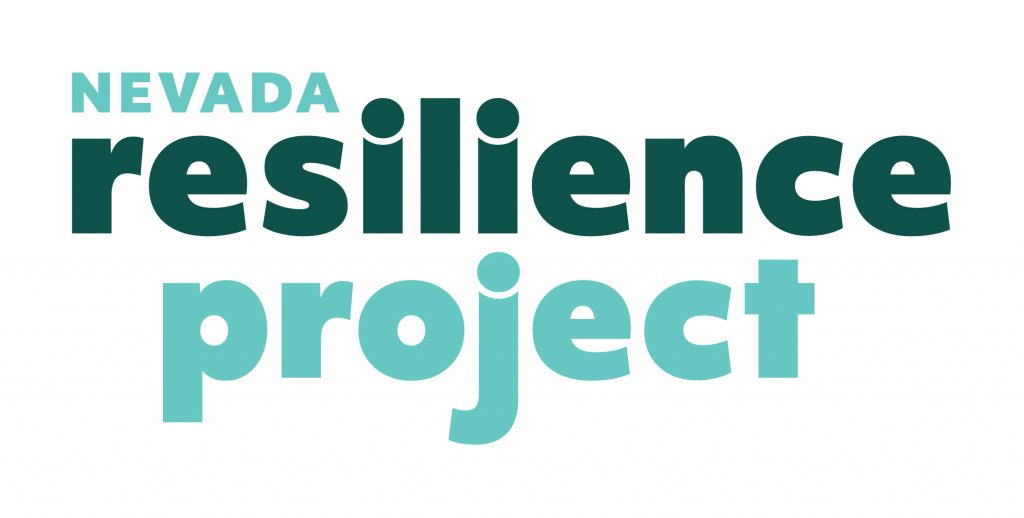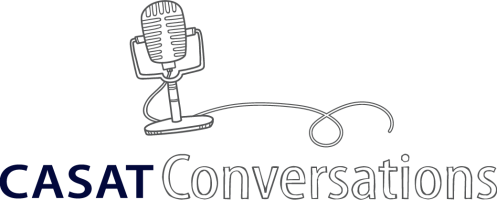Season 2: Exploring the Importance of Resilience in Healthcare
This season we will explore the topic of resilience for primary and behavioral health providers. We will focus on ways to build resilience as an individual, community, and within large systems. We will explore the complexities of resilience, the latest research, and tools for developing resilience as a healthcare provider.
Host: Heather Haslem
S2 E1: Little Moments of Light
Within this episode Dr. Michael Ungar shares his wealth of knowledge on the key elements of resilience. His research focuses on the impact of the environment on our resilience. You’ll hear about the complexities of resilience and what healthcare providers can do to support their own resilience.
S2 E2: Stress First Aid
Dr. Patricia Watson has been supporting people in stressful jobs (i.e. military, first responders, healthcare providers) with her work at the National Center for PTSD for many years. She discusses the stress continuum, along with the five key elements for supporting a person who is experiencing stress, burnout and fatigue. In addition, she discusses the importance of psychological safety, and ways to help build a sense of psychological safety within organizations.
S2 E3: The Cost of Doing Business in High Stress Environments
Dr. Kathy Kain discusses the science behind a somatic approach to help heal the impacts of stress and trauma. She also describes how the body responds to the experiences of our lives, and gives important recommendations for how to support ourselves when working in high stress environments.
S2 E4: Addressing Burnout through Integrative Medicine
Within this episode, Alaine Duncan discusses the role of Integrative Medicine in treating burnout and compassion fatigue. She discusses how she has combined Eastern and Western philosophies to treat physical symptoms of stress and trauma within the body. Her approach to treating the body, and helping to support the parasympathetic nervous system is critical for helping us understand how the nervous system impacts the people around us (i.e. family, patients, and clients).
S2 E6: Connecting the Mind & Body As a Pathway for Resilience
Within this episode Dr. Gordon discusses the importance of mind-body medicine to support healthcare providers. He shares the importance of looking inward, and the importance of practicing self-care techniques, so that you can bring compassionate presence to the people you serve.
S2 E7: Beginning to Understand the Psychological Impacts of COVID-19
In this episode, we are joined by Dr. Dana Rose Garfin, a researcher at UC Irvine. She and her colleagues have been conducting research to understand the impact of both the acute and chronic stress of COVID-19. She has been studying how we respond to disasters for the past decade, and how to cope with stress. We discuss a balanced approach to looking at both the positive and negative aspects of COVID-19, along with her important research on mindfulness meditation in homeless women.
S2 E8: Understanding Vicarious Trauma
Within this episode, Henry Tobey shares his wealth of experience regarding secondary trauma. He shares what he has found to be helpful, along with what he doesn’t find to be helpful when it comes to supporting health-care providers in dealing with the stress and trauma of their work. He shares his vicarious trauma dialogue, which he and his colleagues developed. Be sure to listen, as you may even hear some of the thoughts you’ve had.
S2 E9: Giving Voice to Your Trauma and Using Creativity in Resilience Building
Dr. Meagan Corrado shares her resilience journey as she has learned to tap into sources of strength and creativity in order to support her own healing journey. She discusses how healthcare professionals work in difficult environments, and how critical it is to honor the reality of the challenges faced on a daily basis. She shares practical ways to support healing.
S2 E10: Exploring How Humans Respond to Disasters
Dr. Cohen Silver joins us this week to share her research findings on how people respond to large scale disasters. We discuss the role of media exposure (both news and social media) on stress and well-being, and how important it is to practice technology hygiene when it comes to media exposure. Dr. Cohen Silver also shares important things to consider on how to care for yourself when living in the midst of a disaster.
S2 E11: Anxiety RX: Healing the Root Cause of Anxiety
We are joined this week by Dr. Russel Kennedy, The Anxiety MD. Dr. Russ shares his own journey with anxiety as a healthcare provider, which led him to write his new book, Anxiety RX. He integrates neuroscience with wisdom practices to support healing the root cause of anxiety. You’ll want to hear his unique perspective!
S2 E12: Bonus Episode: The Nevada Resilience Project
Kendal Holcomb and Diana Lara share information about the Nevada Resilience project. The Nevada Resilience Project supports families and individuals experiencing struggles and behavioral health challenges. This important resource helps to connect people with local resources, and access care. Within this episode we discuss mental health statistics for the state of Nevada, and what are some of the biggest needs that Resilience Ambassadors are seeing within the state.
Disclaimer: This podcast is for educational purposes only. Any advice offered on the podcast is an educational context and is not intended as direct medical advice, nor as a replacement for it. If you are experiencing a medical or life emergency, please call 911. If you are experiencing a crisis, please contact the National Suicide Prevention Lifeline at (800) 273 – 8255. If you are experiencing stress, and would like professional help please contact your insurance company to identify a therapist in your area or contact the organization you work for and ask about an employee assistance program.
This podcast has been brought to you by the CASAT Podcast Network located within the Center for the Application of Substance Abuse Technologies at the University of Nevada, Reno. For more podcast information and resources visit casat.org/podcasts/.
 Funding for the Nevada Resilience Project was provided by the Federal Emergency Management Agency and Substance Abuse Mental Health Services Administration.
Funding for the Nevada Resilience Project was provided by the Federal Emergency Management Agency and Substance Abuse Mental Health Services Administration.
















